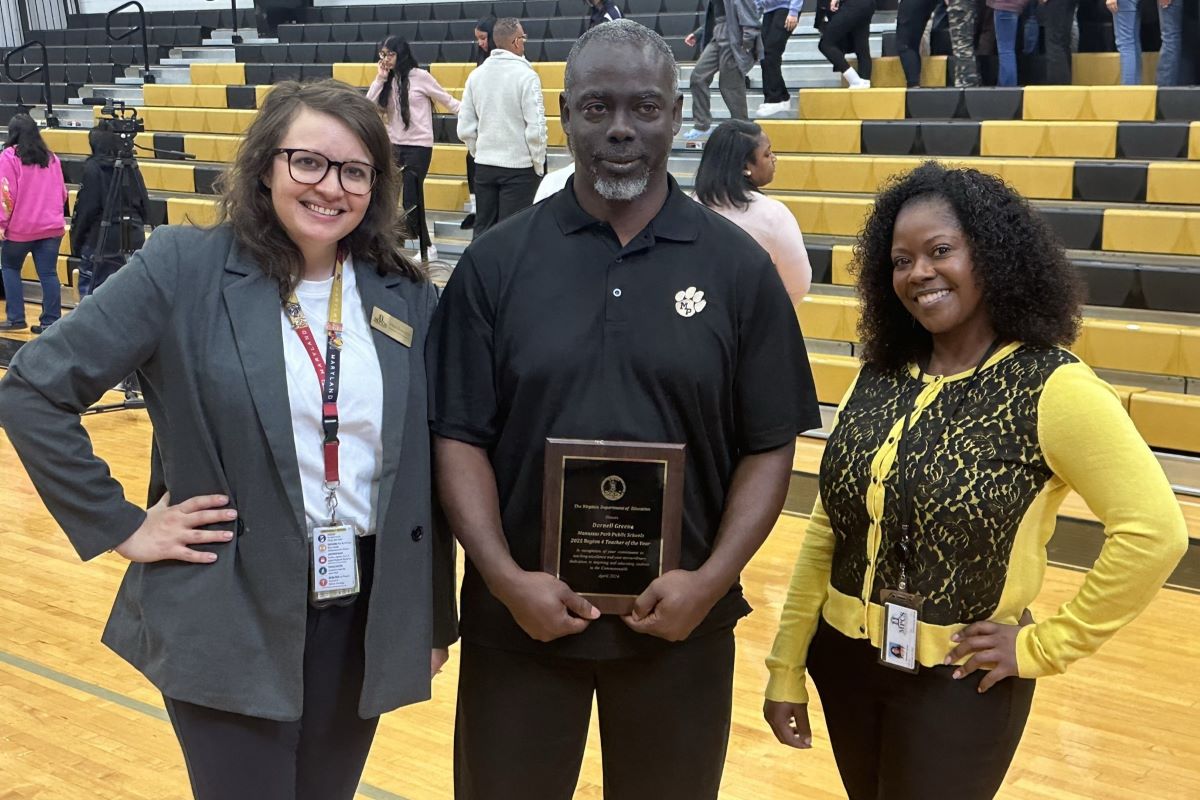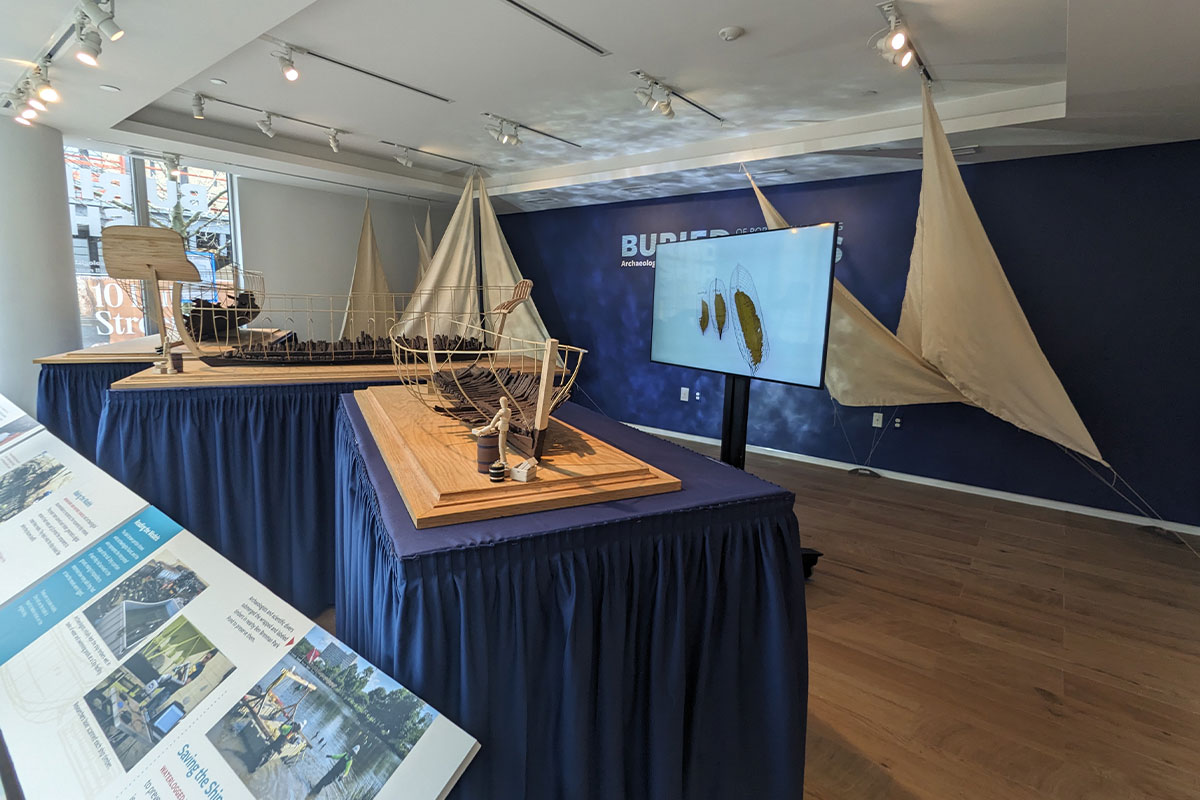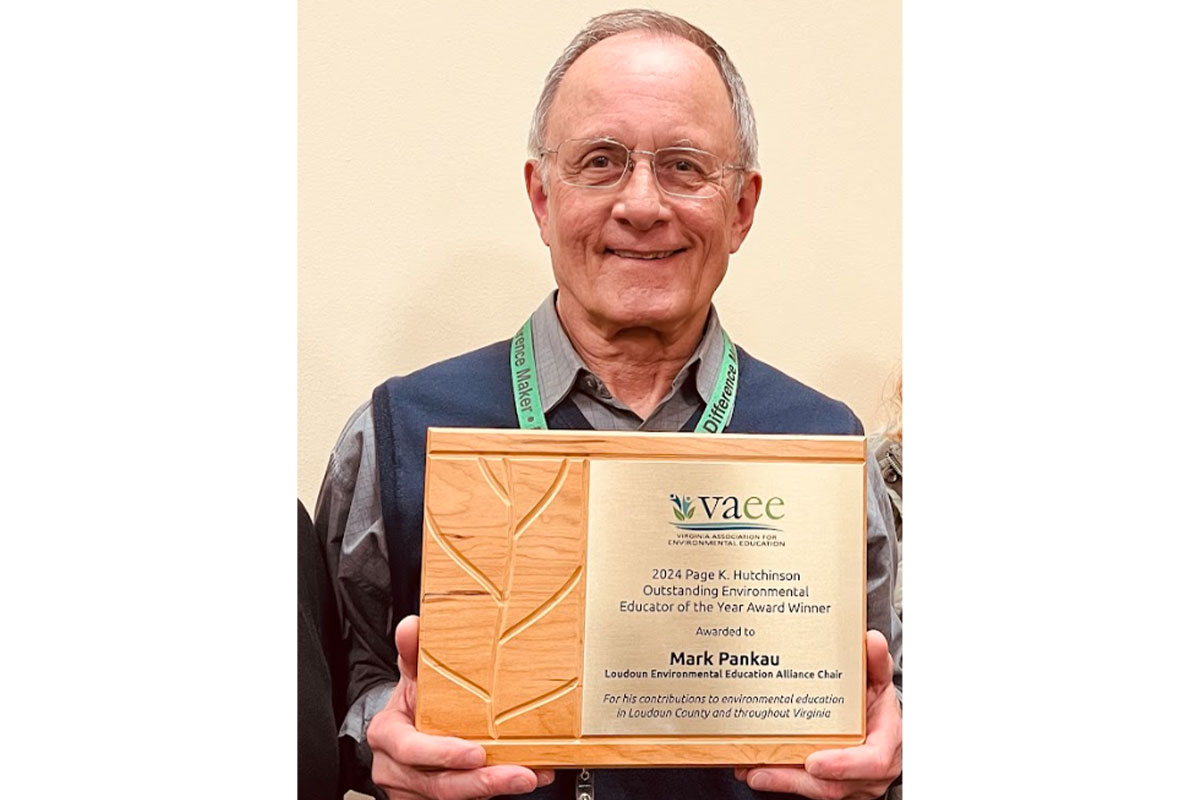While unique experiences abound at both public and private schools, it’s undeniable that private schools offer opportunities rarely seen anywhere else. Interning at Inova Fairfax Hospital, participating in international drone competitions, working on Capitol Hill, and studying cybersecurity are the norm for activities at local private schools. Northern Virginia Magazine discovered some of the most noteworthy programs available, which are providing students with extraordinary access, exposure, and preparation for the future.
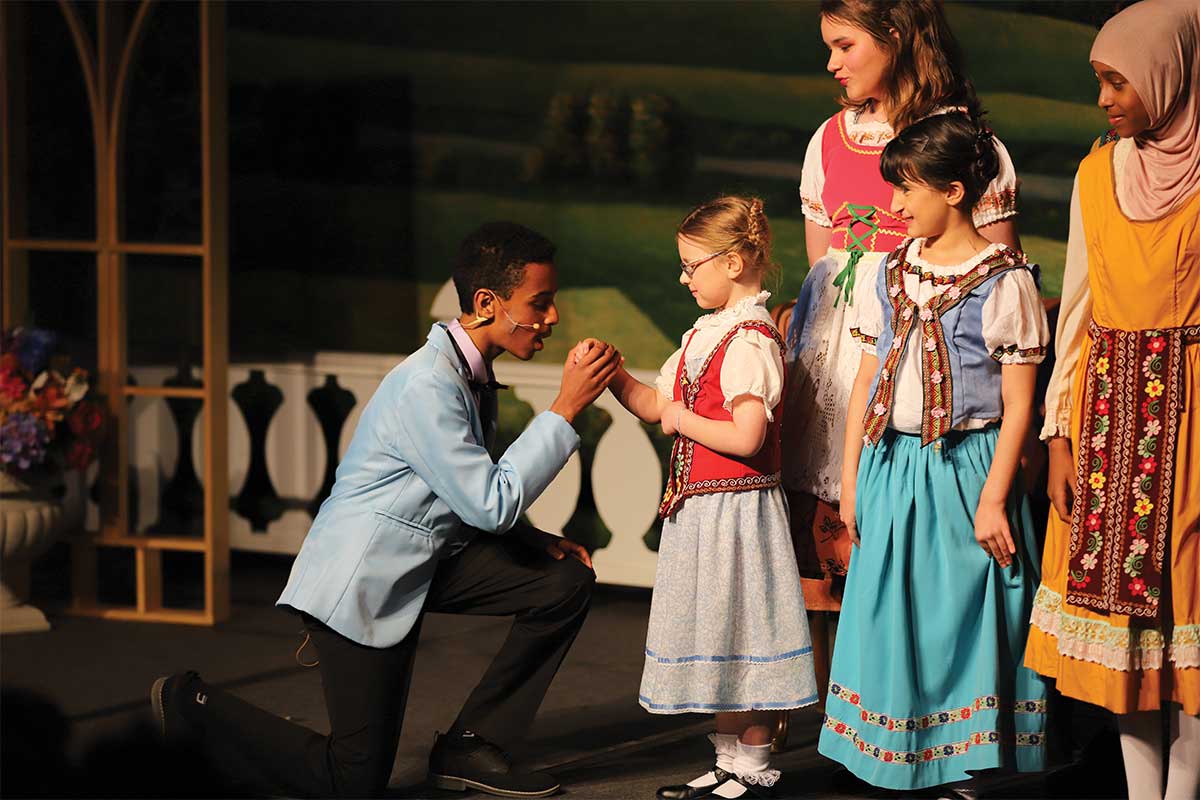
All the World’s a Stage at Westminster School
At Annandale’s Westminster School, all students in kindergarten through eighth grade are involved in impressive annual theatrical productions as part of their curriculum.
“The school is very focused on the arts overall, both performing and visual arts,” says Jori Sapper, Westminster’s admissions director. “But in terms of the performing arts, every grade does a play every year — a full-length feature play starting in kindergarten — so it’s a real community endeavor.”
The theatrical productions provide an opportunity for all students to leave their comfort zones, developing confidence and public speaking skills. The types of plays vary, depending on the participants’ age and curriculum. Eighth graders present a Broadway-style musical, Sapper says, and seventh graders act in a Shakespearean play to coincide with their literature studies.
“There’s just so much camaraderie that comes from putting on a play, in terms of the cooperation and teamwork aspect of it and the feeling of accomplishment,” she says.
Not only do students learn acting and speaking skills through these productions, but the community bond is also strengthened, as the entire school attends a performance of each grade’s play.
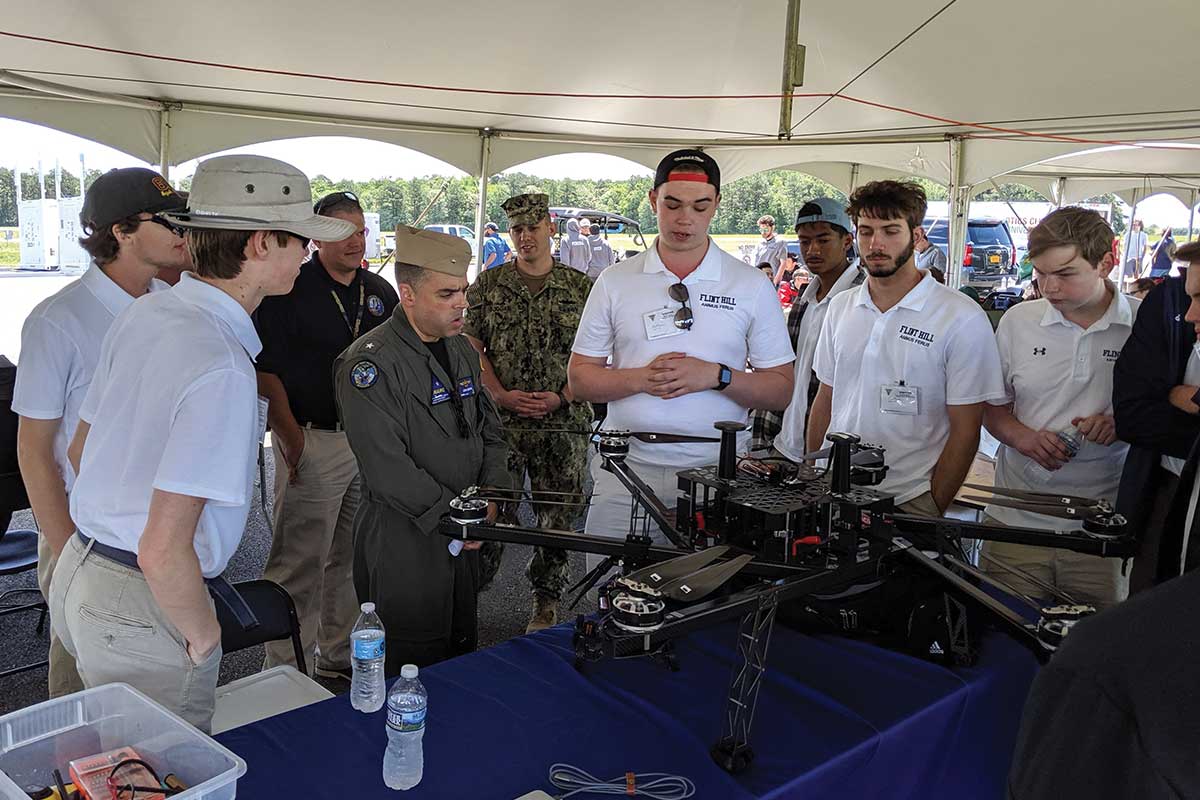
Tech Studies at Flint Hill School
Located in Oakton, Flint Hill School’s pre-kindergarten through-grade-12 campus offers cybersecurity classes partnered with after-school activities, and students jump at the chance.
“In the class, they’re learning basic and intermediate skills for cybersecurity,” says instructor
Michael Snyder, who’s been teaching the program for eight years. Each year, the after-school program participates in four cybersecurity competitions, and Flint Hill School has consistently placed in the top 5 percent nationwide. Due to their advanced skills, “students are recruited directly from high school by some of the agencies in the area,” he says.
The school also offers a focus on drones, a fast-growing sector. The global commercial drone market was expected to expand at a rate of 57.5 percent between 2021 and 2028, according to Grand View Research. Flint Hill School addresses this potential by offering advanced robotics classes, which compete in an annual college-level uncrewed aerial systems (drone) competition.
“We’re one of the few high schools that participate,” Snyder says about the contest, which attracts 72 teams from around the world. Schools like Harvard, Stanford, and Embry-Riddle Aeronautical University are just a few that participate in this world-class competition.
“We’ve come in second twice, and fourth this past June,” Snyder says.
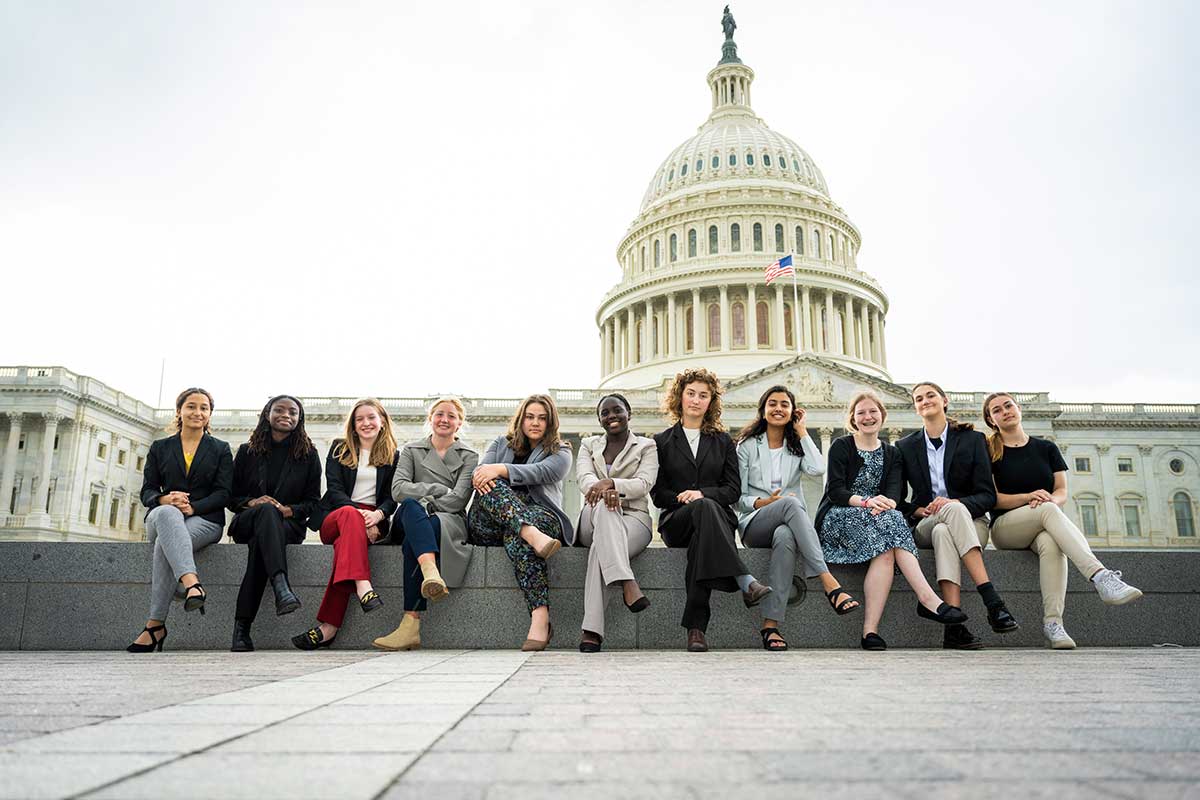
World-Changing Internships at The Madeira School
The elite Madeira School for girls in McLean is the only school in the country that requires three résumé-building internships before graduation.
“Every 10th, 11th, and 12th grader has a five-week internship built right into their academic schedule,” says Karen Joostema, Madeira’s director of communications and marketing. “We have offered internships for over 50 years at Madeira — over 15,000 internships!”
Madeira’s co-curriculum internship program provides each student with five weeks of community service experience in 10th grade, a Capitol Hill internship in 11th grade, and a custom-tailored, career-oriented placement in their senior year.
“During my senior year internship in computer science, I was placed with a small team of interns working on individualized projects in cybersecurity,” says Trudy Painter, a Madeira School graduate and current MIT student. “I was the only high school student; the rest of the interns were in their last years at the U.S. Naval Academy! All of this made me super confident in my abilities as an academic in computer science.”
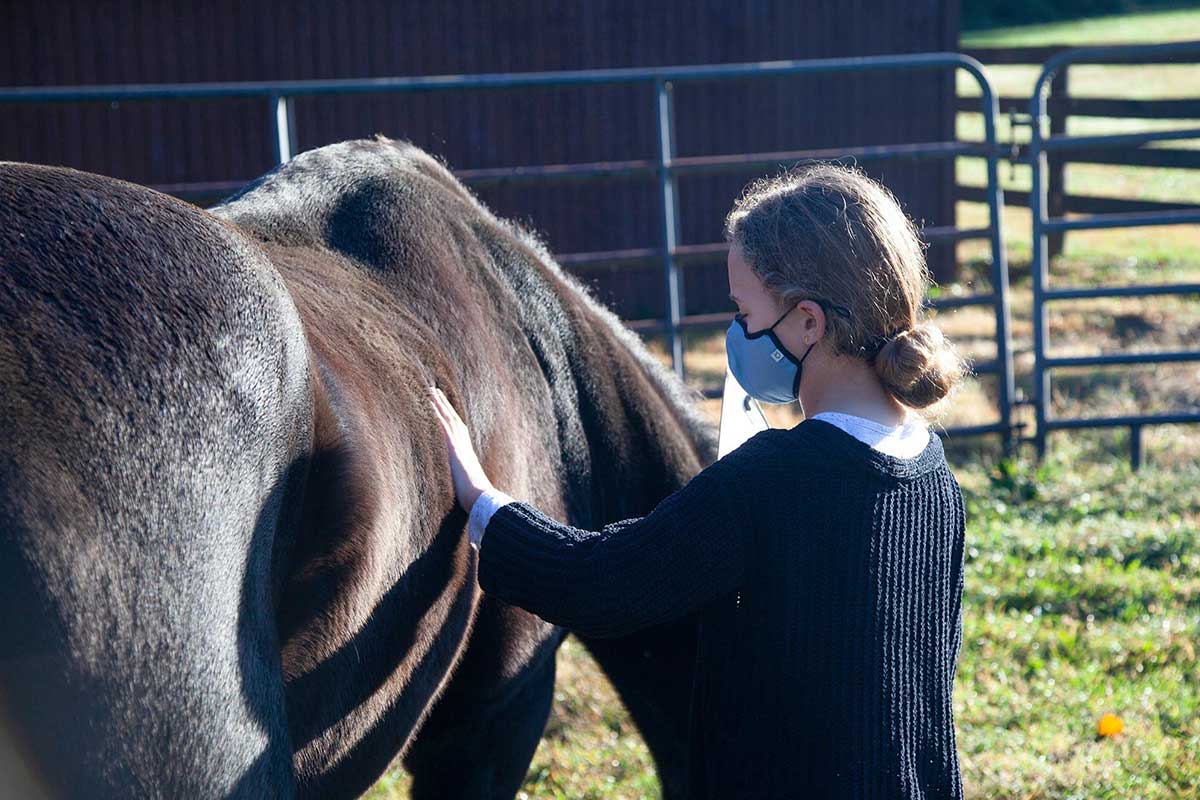
Colts Care at Congressional School
At 24, Maverick is the oldest horse at Congressional School in Falls Church. Horses have been a part of the school’s after-school programs and summer camps since its founding in 1939. Now, the pre-K-through-eighth-grade private school offers a program called Colts Care, where groups of students work with the school’s nine horses on campus as part of their curriculum, incorporating the horses into the school day.
“We consider Colts Care one of our social-emotional learning opportunities,” says Congressional School counselor Rebecca Ginnetti. “It provides a really tangible opportunity to destress or calm or feel a connection to something special in their lives.”
The program began last school year after Congressional’s staff, curious about utilizing horses for therapeutic reasons, realized having students groom and care for horses may have social-emotional benefits. Several students tend to each horse as part of the program, which is available each spring and fall.
“It seems to be really popular,” says equine director Lisa Harkins. “Kids love it — they really do get a lot out of it.”
Twelve-year-old Coco Ellis is in seventh grade and enjoys being a part of Colts Care.
“I love horses — horses are better than homework!” she says.
Individualized Senior Projects at Basis Independent McLean
“Our senior year is extraordinarily unique, [something] that you can’t get anywhere else,” says Kate Irving, college counselor at Basis Independent McLean. Activities during 12th grade are designed to act as a capstone to students’ educational experience through three elements: daily college counseling courses; college-level capstone and post-AP courses; and the Senior Project program, an opportunity to independently pursue their own research interests.
For Sophie Poellnitz’s senior project, she interned at the Decision, Attention, and Memory Lab, which is part of the University of Maryland’s Department of Psychology.
“Considering that I’m interested in decision-making psychology and economics combined, it was like the perfect place to do it,” says Poellnitz, who now attends Brown University in Rhode Island. “Participating in that internship, it showed me that that is something that I’m interested in and something that I’m definitely going to continue studying in college.”
The intensive 10-week internship and in-depth research project often becomes a passion project, Irving says.
“When are they ever allowed to just spend 10 weeks doing one thing that they choose themselves?” she says. “They have actual job experience, actual tangible results that they can talk about, and confidence in their research skills when they go off to college.”
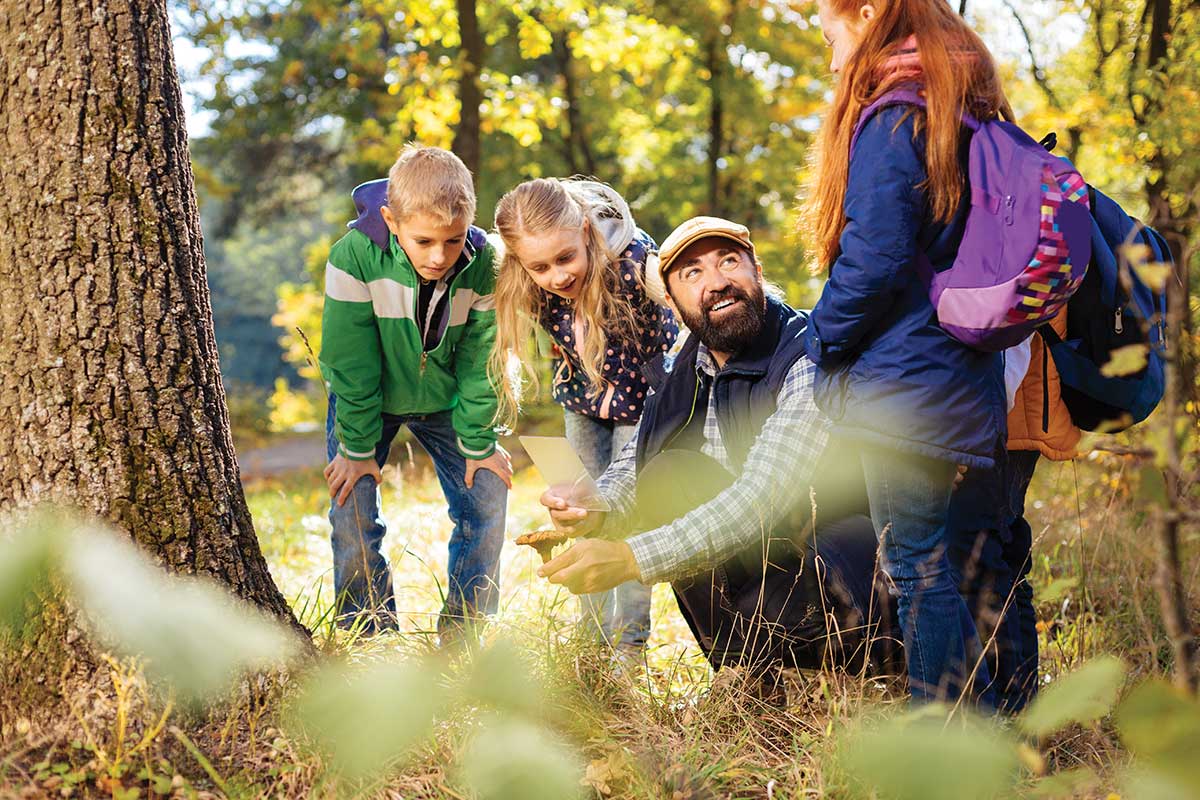
Burgundy Farm Country Day School’s West Virginia Wildlife Center
There’s nothing like the great outdoors, and Burgundy Farm Country Day School makes the most of its 25-acre Alexandria campus and 500-acre wildlife center in West Virginia to teach students from first through eighth grades.
“It’s phenomenal,” says Georgie Ballew, the school’s director of communications. “Our progressive education has just been amazing through this crazy, uncertain time.”
The Burgundy Center for Wildlife Studies at Cooper’s Cove, located in a beautiful, remote valley two-and-a-half hours from Alexandria, is a wildlife sanctuary and educational program owned and run by the school. Beginning in first grade, students spend two to three days each fall and spring in West Virginia for immersive academics linked with lessons on the main campus. This programming makes full use of the diverse natural setting and resources to focus on natural science.
“They’re looking at trees and animals, they go on hikes,” Ballew says. “It definitely takes advantage of our natural setting.”
Full STEAM Ahead at The Langley School in McLean
Even as tiny tikes, students at the preschool-through-eighth-grade Langley School in McLean adhere to the mandatory STEAM (science, technology, engineering, art, and math) curriculum.
“Basically, we are teaching the engineering design process starting in kindergarten,” says Head of School Michele Claeys. “They’re doing projects in life science, physical science, Earth and space science.”
Claeys says the academic program is inquiry-based, and students are constantly exploring, researching, and then iterating solutions in a variety of projects.
“They all have an amazing experience with innovation that they’ll take with them,” she says. “We’re setting them up as innovators and problem-solvers long after they leave Langley.”
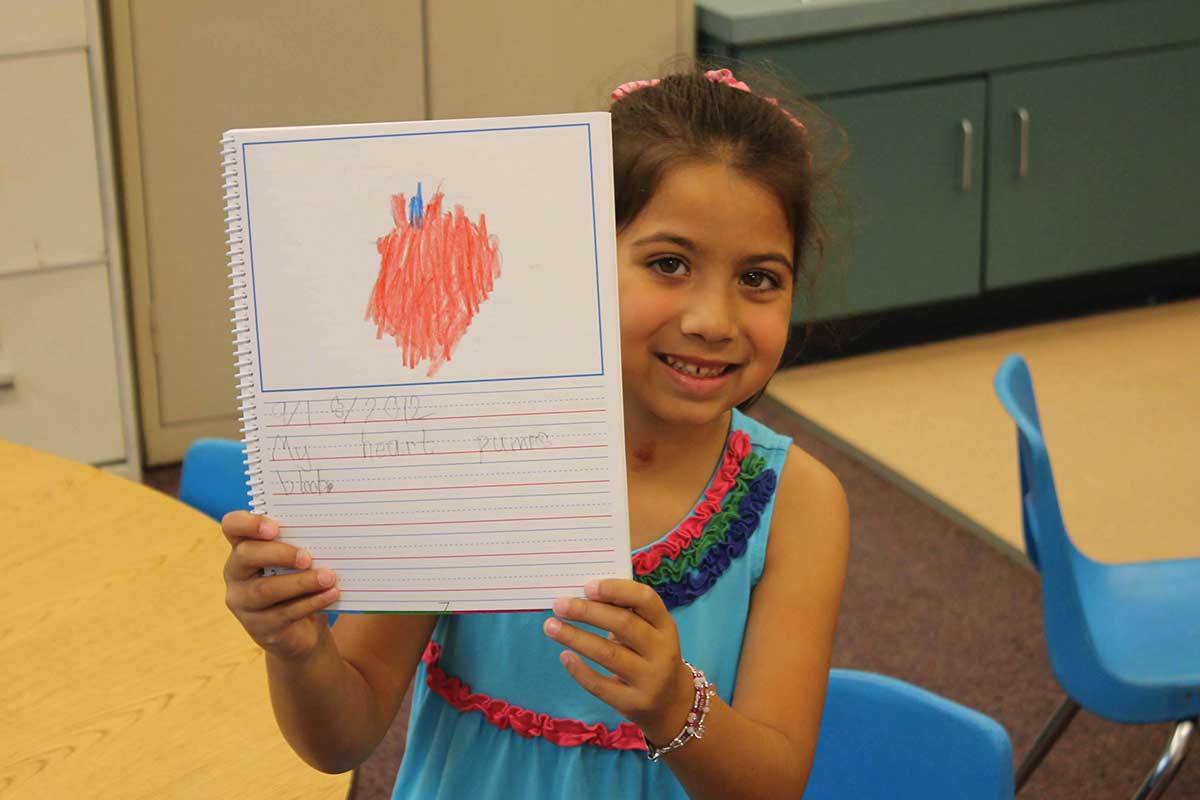
It’s OK to Have Fun at the Nysmith School
Kenneth Nysmith, head of the Nysmith School in Herndon, loves eavesdropping on students answering questions for families touring the school. He recalled one student, when asked what he would change about the school, replying that he would add classes on Saturday.
“You just can’t get a better testimony than a child who really can’t wait to come to school,” Nysmith says. “It’s just joy — it’s just making school fun.”
The school, founded in 1983 by Carole Nysmith, Kenneth’s late mother, has a 1:9 teacher-student ratio that enables plenty of personalized instruction. Nysmith says classes are composed of students who love to learn, taught by teachers who really love to teach. The school nurtures children in a variety of ways, from social and leadership skills to math, science, technology, and language arts.
“That’s really what makes the difference,” Nysmith says. “The teachers are intentionally taking advanced academics and tweaking [them in a] fun way so that it pulls the kids in.”
This story originally ran in our November issue. For more stories like this, subscribe to our monthly magazine.



